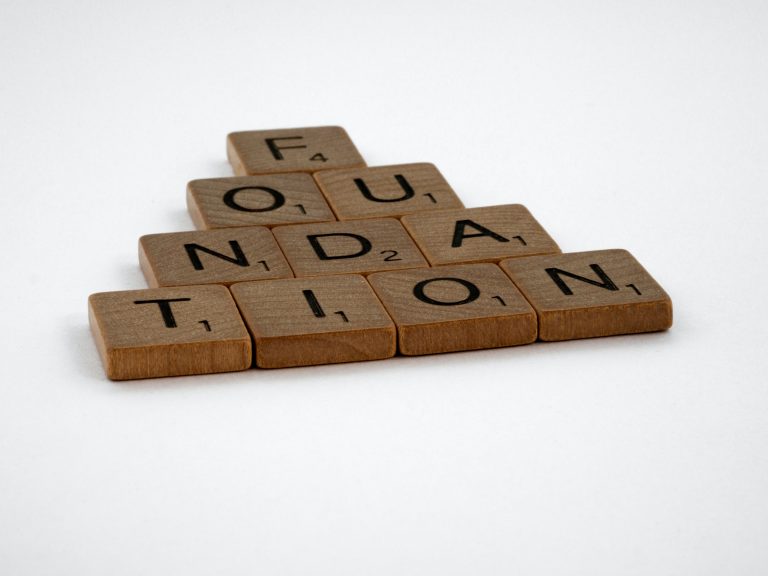How to plan for your future retirement (4 key building blocks)
Learning how to plan for your future is an important life skill and the key to reaching your most important goals.
Learning how to plan for your future retirement involves four key building blocks: setting retirement goals, keeping physically and mentally healthy, securing your income, and ensuring financial stability. By following these four pillars, you can make a solid plan for your retirement and work towards achieving a comfortable and financially secure future.
Planning your life for the future does not have to be difficult or daunting if you consider these four steps! If you’re asking yourself how to plan my life for the future – read on for the answers

What is retirement, and why do you need to plan for it
When it comes to retirement, there are many things to think about. What is retirement, exactly? Retirement is the point in your life when you decide to stop doing one thing, sometimes working, either permanently or temporarily.
Why do we need to plan for it?
Because retirement can be expensive! You’ll need to save enough money to cover your costs, whether moving to a retirement community or living on a fixed income.
So how do you plan for retirement?
The first step is to calculate how much money you’ll need.
Once you know that, you can start saving up. It’s also important to think about what you want to do in retirement.
Do you want to travel the world?
Or stay at home and relax?
Whatever your retirement goals, make sure you set milestones to help you reach them.
Do I Have Enough Money To Retire?
It’s not easy to predict what your finances will look like in retirement. You could end up needing more or less than originally planned for! This is why it’s important to plan ahead, save, invest and create as much money as you can.
The four building blocks of a successful retirement
A successful retirement is something that all of us aspire to – but what does it actually take to achieve this?
I believe there are four primary building blocks: preserving your health, securing your income streams, managing your assets and finally planning for retirement. Let’s discuss each of these in a little bit more detail.
First and foremost, preserving your health as you age is essential. This means eating a healthy diet, exercising regularly, and seeing your doctor for check-ups.
You’ll also want to make sure you have adequate health insurance and/or coverage. Second, it’s important to secure your income streams.
This may involve increasing your contributions to retirement savings accounts, general investment accounts or it may involve making sure you have another income stream in place to support you when you’re no longer working.
Examples of this include Social Security benefits or investments that can provide regular checks.
Third, it’s crucial to manage your assets. This is about maintaining good records and staying on top of your money and investments.
Fourth, planning your life now and retirement should be one of your regular activities.
Whether you’re saving for a big life event or retirement, having an adequate plan will ensure that your money stays in your control and you don’t spend it wastefully.
By considering these four steps, you can plan for a successful retirement and live the life of your dreams now and when you’re older!
Take care of your physical health
Preserving your health is important for a successful retirement. You can have all the money in the world, but if you don’t have the health to enjoy it, it’s not going to be that much of a lifestyle.
The basics of a healthy lifestyle include. Eat healthy foods and exercise regularly to keep your body fit and healthy.
If you have any well-known unhealthy habits, consider their impact on your ongoing and later-life health and if stopping them might be a good idea.
Get regular check-ups and screenings to keep your physical health in check and to spot anything before it becomes serious.
Take care of your mental health
Maintaining your mental health is just as important as taking care of your physical health when it comes to retirement planning.
Many people assume that once they retire, they will be able to relax and enjoy their golden years. However, this is not always the case – especially if you have not taken steps to properly care for your mental health.
Some common issues retirees face include boredom, loneliness, or a sense of emptiness after leaving their job. This can lead to depression or anxiety, which can, in turn, affect your overall quality of life.
good news is that you can do things to prevent or address these issues. Some ways to take care of your mental health in retirement include:
• Staying socially active by joining a club or attending social events in your community
• Volunteering to help others in need
• Finding new interests that you would enjoy, such as painting or playing an instrument
• Doing things that remind you of your past work life but in a less stressful capacity. For example, you may enjoy consulting on the side if you were a business owner.
Secure your income streams
Securing your income streams is one of the most important things to consider when planning for retirement.
This is especially important if you are no longer working and relying solely on your retirement savings to support you.
There are a number of ways to ensure you have a steady income in retirement:
• Investing in reliable and stable sources of income, such as fixed-income investments or annuities
• Downsizing your home or moving to a smaller, less expensive one
• Taking out a reverse mortgage loan
• Working part-time in retirement Each option has its own benefits and drawbacks, so it is important to weigh all your options and choose the one best suited to your needs.
Manage your assets
Managing your assets is vital to the overall success of your retirement plan.
This is where you will need to have a clear plan of how you will draw down on your funds, while at the same time having a plan that not all your assets will be depleted in a short amount of time You should consider two main types of assets when drawing up your retirement plan: pension or retirement accounts and non-pension or personal accounts.
When you contribute to a pension account, the contributions are made on your behalf and will be taxable if they are withdrawn before you reach the age of 59.5 years old. Non-pension or personal accounts should be treated as any other savings account and can result in a much higher tax rate when withdrawing funds early
Another factor to consider is inflation and how your retirement plan matches up to that if you retire with a large amount of money.
Your money will half in value at a 3% inflation rate in about 24 years. Planning for inflation and how it will affect your retirement plan is very important and can mean the difference between having a comfortable retirement and being stuck with a retirement plan that is not feasible anymore.
Plan for a great life now and in retirement
What are your life and retirement goals? What does good look like in every area of your life?
- Work, full time, part-time or volunteering or start a business
- Travel and adventure
- Family and friends
- Hobbies & interests
- Further education
Once you have an idea of these, you can figure out which ones you want to accomplish on the way to retirement and which ones are in retirement.
Remember, your not trying to save up all your fun for your old age – why not have some now and then! Once you have your goals figured out, you have to look at what actions might be needed to achieve them
- Get up earlier
- Get fit
- Take that course
- Get a coach or mentor
- Automate your finances to save regularly
- Learn about investing for the future
Now taking a lot at your means or money, do you have enough to do all the things you want to do? If not, how can you find a way to create more?
- Get paid more
- Work harder
- Improve your qualifications
- Create more income-generating assets – especially those that work in your sleep
Once you have your goals and actions, executing your plan is time. Take action, review and revise as you go. Here’s where patience, persistence and your process will be the key to your success.
FAQ: how to plan my life for the future
How do you plan your future for next 5 years?
Planning your future for the next 5 years can seem like a daunting task, but with a few key steps, you can create a roadmap for achieving your goals. Here are some strategies to consider:
Define your goals: Start by identifying what you want to achieve in the next 5 years. This could include career goals, personal goals, financial goals, or any other areas of your life that are important to you. Write down your goals and be as specific as possible.
Create a plan: Once you have defined your goals, create a plan for achieving them. Break down your goals into smaller, manageable steps and set deadlines for each step. This will help you stay on track and measure your progress over time.
Stay focused: It’s easy to get distracted or discouraged along the way, but it’s important to stay focused on your goals. Keep your plan visible and regularly review your progress to stay motivated.
Be flexible: Remember that plans can change and unexpected events can occur. Be prepared to adjust your plan as needed and be open to new opportunities that may arise.
Take action: Ultimately, achieving your goals requires action. Take the necessary steps to progress and progress towards your goals every day.
By following these strategies, you can create a clear plan for achieving your goals and set yourself up for success in the next 5 years.
How do I plan my 10 years of life?
Planning for any time period often involves the same elements.
Get clear on your goals in every area of your life
Consider all the actions you will need to take and the challenges to overcome.
Figure out what means/money you will need to earn, create, save and invest.
Execute your plan every day.
How do I plan my life long-term?
PLaning your life for the long term involves:
Being crystal clear on your goals for health, wealth and happiness.
Detailing the actions you need to take to reach your goals, including those to overcome internal and external obstacles
Understanding the money you need to save, invest and/or create to reach and afford your goals.
And then daily execution of your plan.
At what age should I start planning my life?
You can start planning your life at any age. In fact, the earlier you start the better you will get and the more likely you will reach your goals.
What should a 5 year plan look like?
A five-year life plan should include
Your most important life goals for health, wealth and happiness
An action plan detailing what needs to be done and when
A money plan to figure out how you will save, invest and create the money you need
And a daily execution time table to manage and monitor how you are getting on.
Conclusion: How to plan for your future
Planning your life for the future does not have to be difficult or daunting if you consider these four steps!
The first step is to work on maintaining your health.
This may seem like a no-brainer, but it’s actually really easy to let this slide when things are going well in other areas of our lives.
Next, we need to start thinking about securing income streams and managing assets so that you can sustain yourself throughout retirement without having too much financial stress.
Finally, planning for retirement should include taking care of yourself physically and mentally by staying engaged with hobbies and activities that make you happy or just getting out there more often than before!
Starting today, create an action plan around each one of these building blocks so that you are about to live a great life now and later.
Click below if you want to start living your ideal life now and in retirement: Plan your way to success.






